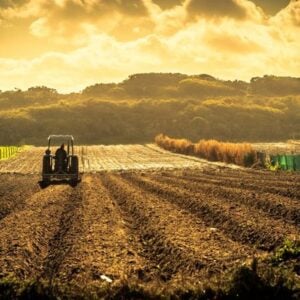The International Labour Organization (ILO) and Lebanon’s Ministry of Agriculture have jointly launched the country’s first Occupational Safety and Health (OSH) Guide in Agriculture, a significant step toward improving labor conditions in a sector vital to Lebanon’s economy. This initiative represents a foundational shift in how safety and health are integrated into agricultural practices across the country.
The guide is the product of over two years of consultations involving the Ministry of Agriculture, Ministry of Labour, ILO social partners, and key sector stakeholders. It was informed by findings from the ILO’s 2022 Preliminary Assessment of OSH in Agriculture, conducted in Akkar and Bekaa, which identified widespread risks including physical, chemical, mechanical, biological, ergonomic, and psychosocial hazards. The assessment revealed that existing farm safety practices largely failed to meet international standards, citing inadequate use of protective gear and limited training for agricultural workers.
Addressing these shortcomings, the new guide promotes a more worker-centered model of agricultural governance. Lebanon’s Minister of Agriculture, Nizar Hani, emphasized that it is not just a manual but a roadmap for embedding safety and dignity into every phase of agricultural production. He called it a moral, economic, and developmental necessity for achieving a fair and sustainable agricultural future in Lebanon.
The guide draws from international frameworks such as the ILO Declaration on Fundamental Principles and Rights at Work and Conventions No. 184 and No. 129, which outline OSH standards and labor inspections in agriculture. It is designed to ensure safe and healthy working environments while supporting the broader application of international labor standards in Lebanon.
Developed under the ILO’s global PROSPECTS Partnership—backed by the Government of the Netherlands and implemented with organizations such as the IFC, UNHCR, UNICEF, and the World Bank—the guide also aligns with broader efforts to strengthen resilience in Lebanon’s labor market. The Dutch Ambassador to Lebanon, Frank Mollen, highlighted that safe working conditions are critical for both Lebanese and Syrian agricultural workers, and that these improvements will benefit the country’s overall economic recovery.
The guide was piloted through a four-day training program aimed at building the capacity of current and future OSH trainers. It was further validated through training sessions conducted for 400 farmers and workers in Akkar and Beqaa in collaboration with the René Moawad Foundation. According to ILO Regional Director Ruba Jaradat, this guide advances the ILO’s mission to promote decent work by institutionalizing safety standards and safeguarding both national and migrant agricultural workers, whose roles are crucial for food security and rural livelihoods.
Comprising 11 detailed modules, the guide addresses national and international OSH laws, key principles of workplace safety, types of hazards, ergonomic and psychosocial risks, and the particular vulnerabilities of women and children in agriculture. These issues are pressing: globally, agriculture accounts for one in three fatal occupational injuries, with nearly 3 million work-related deaths annually. The economic cost of workplace accidents and occupational diseases is estimated at 4% of global GDP.
The launch of this guide marks a major advancement in Lebanon’s pursuit of safer, more equitable, and productive agricultural work, laying the groundwork for broader institutional reforms and long-term rural development.







